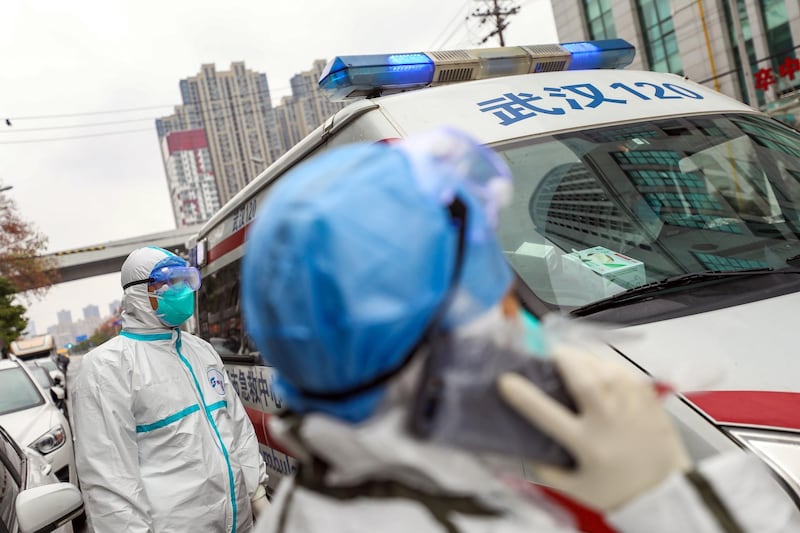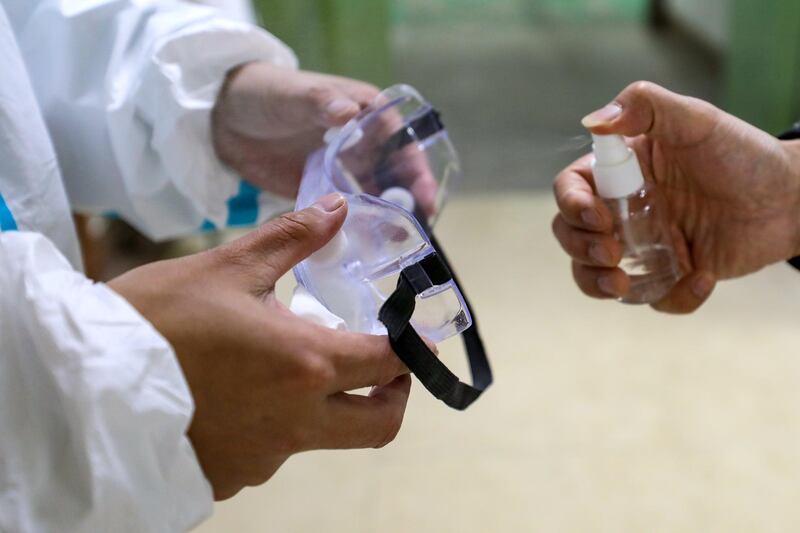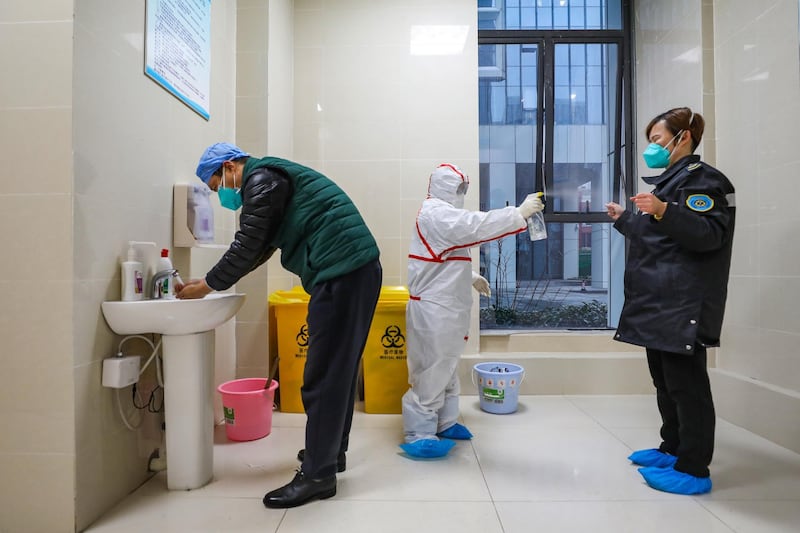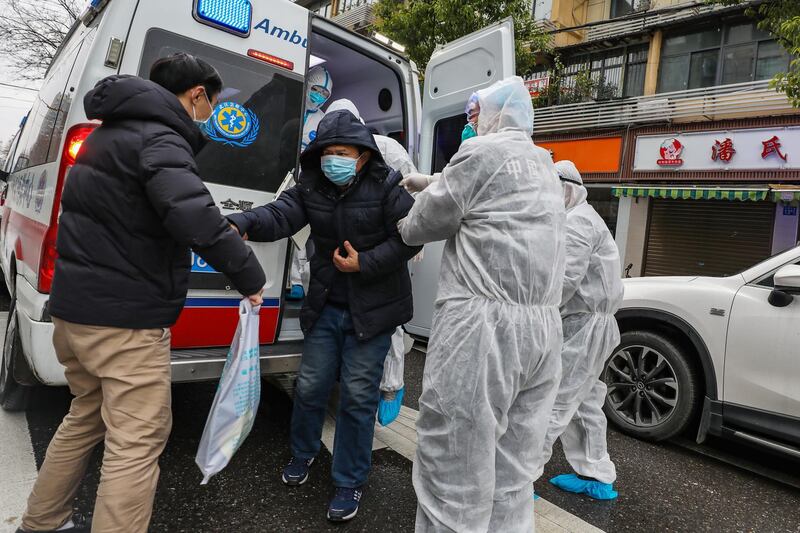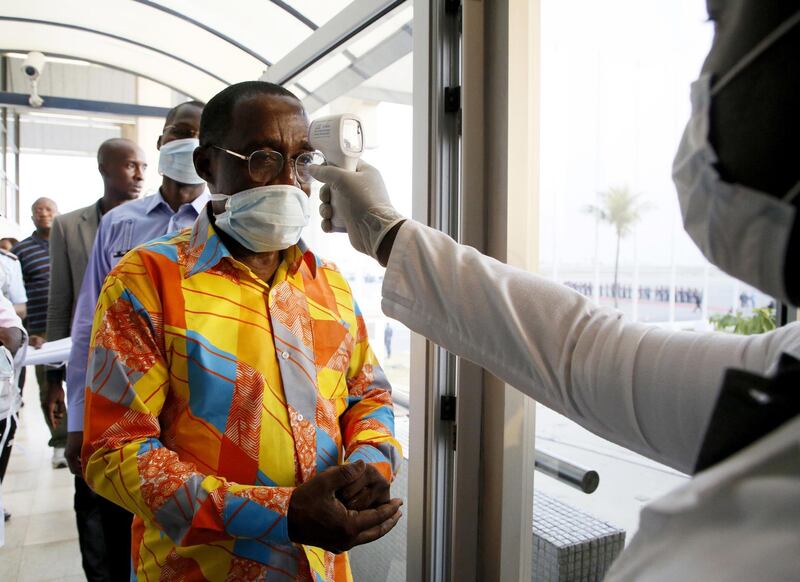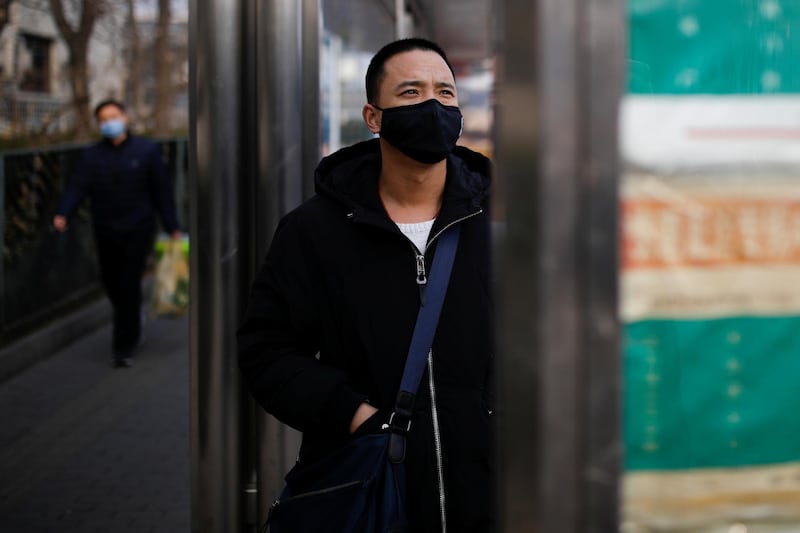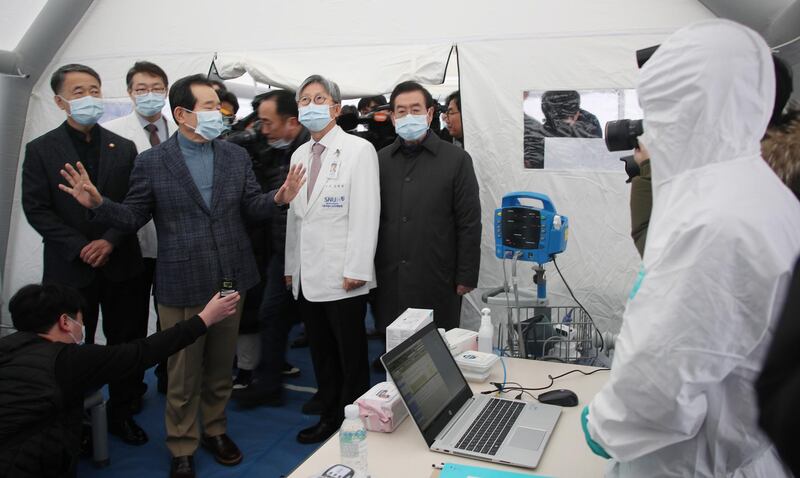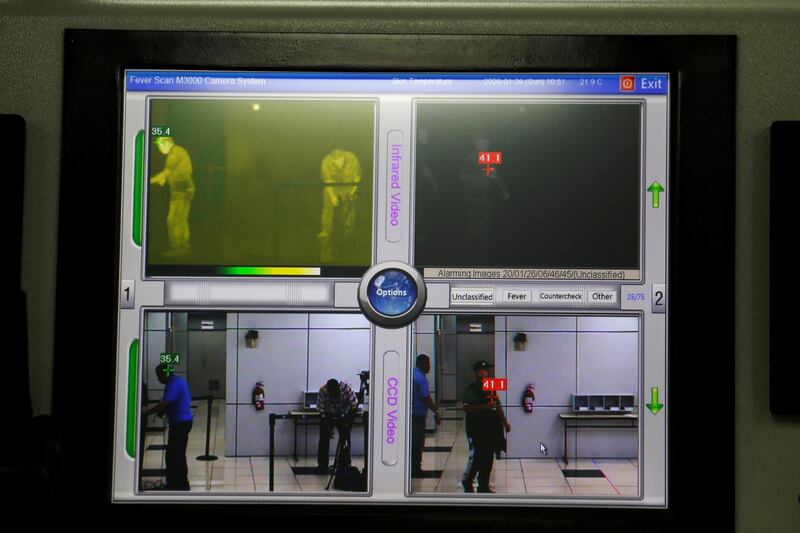LATEST: first case of Wuhan coronavirus detected in the UAE
According to the latest official figures, there have now been 4,515 confirmed cases of the new coronavirus in China. About 20 per cent of these patients are in a critical condition – although experts from the University of Hong Kong said the number of those infected may be as high as 44,000.
According to doctors at the university, about 25,000 people in Wuhan, the centre of the outbreak, are probably symptomatic already, with the rest still in the incubation period.
They said cases of the new coronavirus could reach pandemic levels, cautioning that sustained human-to-human transmission of the virus was already taking place.
Experts have issued a warning that China could lose the battle to control the spread of the outbreak due to the virus's long incubation period. Incubation is “generally” between three and seven days, but it can be up to two weeks. People are believed to be able to spread the infection during this time.
Doctors have said learning how to protect yourself from infection could be vital in avoiding the illness. So how do you do that? The National explains.
How severe is the virus?
We do not really know as yet, simply because it is so new. It is one of seven known coronaviruses – four of which result in symptoms no more serious than the common cold. The exceptions include Sars, which has a fatality rate of 14 to 15 per cent; Mers, which kills about 35 per cent of people it infects; and the new virus.
Like Sars and Mers, the Wuhan coronavirus causes pneumonia and can kill. But there could be many infected who develop such mild symptoms they do not know they have it. It is currently believed to be much less severe than Sars and Mers, with a fatality rate above 3 per cent, based on confirmed cases.
Is this an epidemic? The numbers seem to be growing fast
Yes, but that is the nature of it, said Dr Charles Stanford, senior director at VPS Healthcare. “What happens in an epidemic — a real epidemic — is that things start to change, so it’s not just one person infecting one person. If I have it, I will probably infect two or three others. They will infect two or three other people. So before you know it, within a couple of days you are in to hundreds and then thousands of people infected,” said Dr Stanford. The epidemic is, however, limited to cities in China only so far, he said.
How do you protect yourself from infection?
“The most likely way of getting an infection is by inhalation, by touch and by eating something that is infected,” said Dr Stanford. “Let’s forget about eating things that are infected since we don’t eat bats or snakes.”
That leaves inhalation and by touch. It may sound simple but if done thoroughly and properly, washing your hands will offer the best protection from any type of infection, including flu, which remains a risk at this time of the year.
According to the United States’ Centres for Disease Control and Prevention, to do that you need to lather your hands — which should have been wet with clean warm or cold water — with soap. All areas should be thoroughly scrubbed with soap, including the backs of your hands, between your fingers and under your nails. This should be done for at least 20 seconds. If you need help with timing, the CDC recommends you hum the happy birthday tune twice.
“Once you wash your hands, make sure they are dry. If you can’t wash your hands, make sure you have a hand sanitiser,” said Dr Stanford.
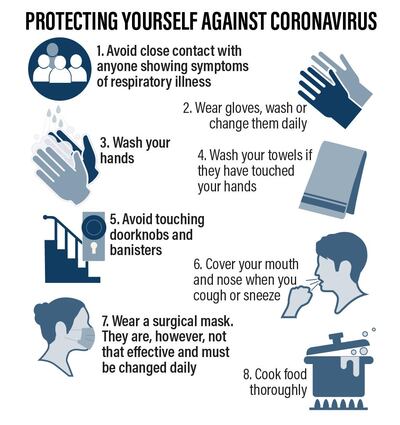
What about masks? Are they useful?
Not really. “The type of mask you see going around isn’t all that protective,” said Dr Stanford.
“In hospital we use what’s called an N95 mask. It’s put on tightly to make sure there is no air getting in other than[ through a mechanism] that can filter out organisms.”
The masks you usually see people wearing are not recommended by the CDC. By all means wear one if you are worried, said Dr Stanford. “But you would need to keep changing it and you should realise it is not total protection,” he said.
So what should you do if someone is coughing?
Keep out of the way, said Dr Stanford. If you have a cough yourself — along with fever, coughing is one of the main symptoms of the virus — you should turn your head and cover your mouth.
“Carry some tissues with you and put a tissue over your mouth to cover it if you are sneezing or coughing,” he said.
Should we avoid crowded places like malls, cinemas and food courts?
“If there is something happening in Abu Dhabi the Ministry of Health will announce that. Prior to that use common sense, keep yourselves clean in terms of hygiene,” Dr Stanford said.
